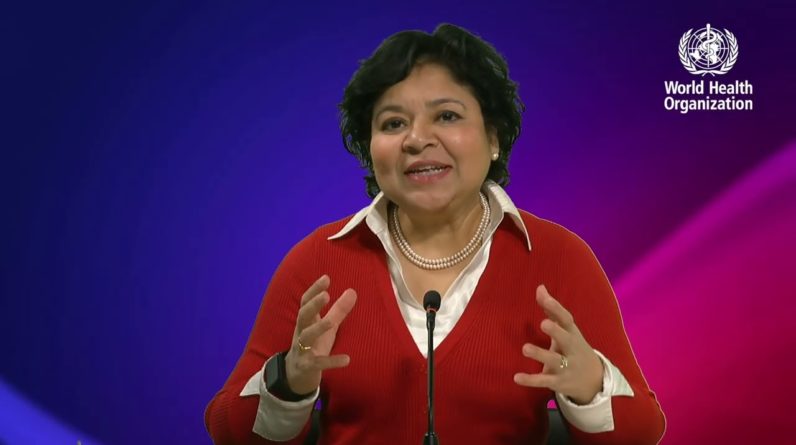
We are talking about
salt in our diet today. What happens when we consume
too much salt and how can we reduce it in our diet
and why should we do that? Hello and welcome
to Science in 5. I am Vismita Gupta-Smith. We are talking to
Dr Francesco Branca, today. Welcome Francesco. Francesco,
WHO latest report is urging everyone to reduce salt in our diet. Please explain to us what happens when we consume
too much salt. Consuming too much salt
is leading to increased blood pressure and
to increased risk of death for heart disease and stroke. Too much salt is the most
important dietary risk factor for the global burden of disease. We have one adult in four
that has a high blood pressure and we have 2 million people
dying every year as a result of consuming
too much salt. Francesco, how do we know if
we are consuming too much salt? Most of us are consuming
too much salt. The WHO recommends
to consume not more than 5 grams of salt every day, which is roughly half of what
on average people consume in the world.
You can get salt from what you
add to foods at home, or you can get salt from the
manufacture of products. In many high income countries,
the largest amount of salt comes from manufactured food. About 80% comes from
manufactured food, such as bread, cheeses, preserved meat,
but also high salt snacks, and food consumed out of home. Normally the same preparation that we consume at home
has less salt than the one that is produced
in a restaurant, for example. Just to give you an example,
if you take an average bag of chips of 150 grams, only that bag of chips
contains half of the salt we're supposed to
consume every day. In low income countries, sodium or salt comes mainly
from what is added during the home preparation and
during the preparation of preserves. And, you know, it comes from
condiments or other sources that are added to the food.
Francesco, let's talk about how
we can reduce our salt intake. You can progressively
reduce salt in your diet and adjust your taste. It will take a few weeks,
but eventually you will be able to reduce your salt intake. Remember that we need to do
that by one third to one half of our current intake. Some of it is under our control and
we can add less salt during cooking.

We can replace it with other seasoning,
you know, lemon juice, spices. We can also decide to buy less
of the food that contains a high amount of salt
i.e. of processed food. We can buy less
frequently certain options. We can also buy alternatives. The same product sometimes
is designed to contain less salt. And if you look at the labels,
it's actually explicitly mentioned that it could be
a low salt product. We can also altogether replace
certain options with healthier ones. So if you reduce the consumption
of salty snacks, you can instead consume fruit
and or vegetable as a snack. And fruit and vegetable not
only contains less salt, but they contain another
important mineral – potassium, which is protective for our arteries
and actually protects us from increased blood pressure.
But then it's not just
our responsibility, but it's what we see in
the food environment we live. And governments can nudge
companies to put on the market products with less salt,
but they can also offer meals in public institutions such as
schools that contain less salt. So there could be really an
overall collaboration between individual consumers and public
health authorities to help us reduce the risk of high blood
pressure by reducing salt intake. Thank you, Francesco. That was Science in 5 today. Until next time then, stay safe, stay healthy
and stick with science..







